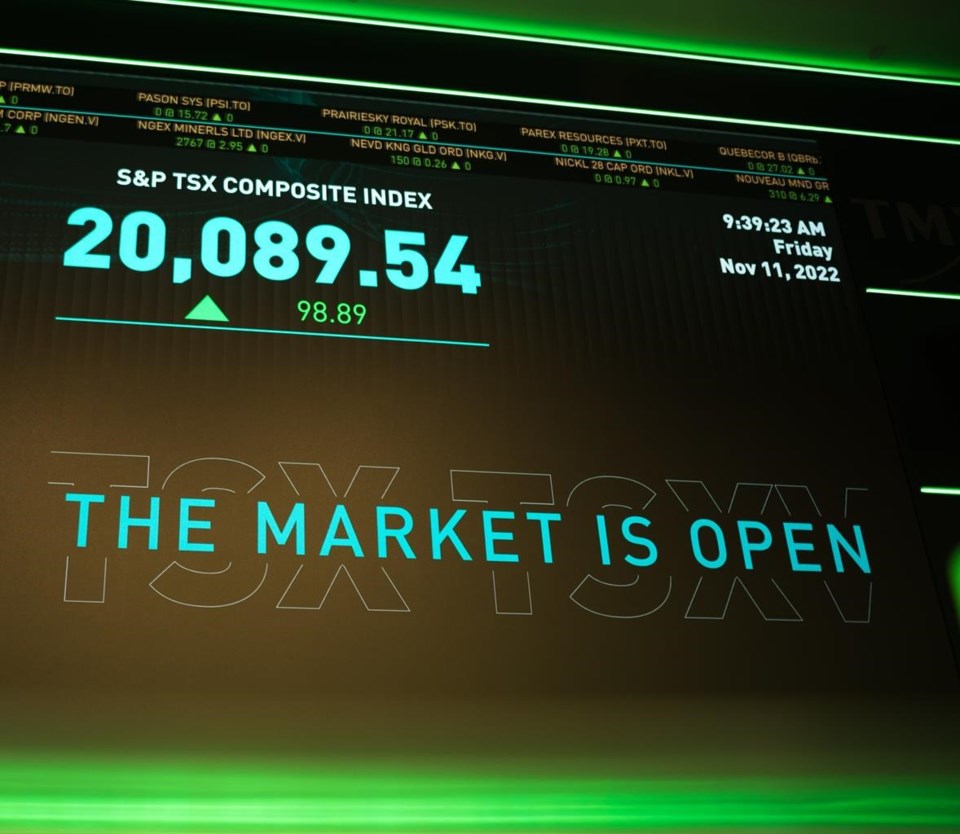TORONTO — Gains in telecommunication and energy stocks helped Canada's main stock index creep higher to start the week.
The S&P/TSX composite index closed up 71.66 points at 21,061.88, while U.S. stock markets were closed for Martin Luther King Jr. Day.
It was a quiet day on the TSX, which tends to be the case when U.S. markets are closed, said John Zechner, chairman and lead equity manager at J. Zechner Associates.
But there’s a lot to look forward to for investors in the coming weeks after the big U.S. banks kicked off fourth-quarter earnings season on Friday with a mixed bag of reports, said Zechner.
Investors will be looking for forward guidance from companies, he said.
“I mean, 2023 economically was a pretty good year, so the fourth quarter was relatively strong,” he said.
“So now it’ll be ... how does it look going forward?”
In particular, the biggest tech names reporting in a couple of weeks will set the stage for the overall market, said Zechner.
Also on investors’ radar will be any economic data reports that can help shed light on when central banks might start cutting interest rates.
The U.S. Federal Reserve recently signalled it expects to cut its overnight rate three times in 2024, but investors have been betting on closer to six cuts, said Zechner.
However, the aggressive calls for cuts to start in March have been pared back in recent weeks, he said, adding that cutting in March “doesn’t seem feasible.”
“I think the expectation is by May. That that seems to be sort of the odds-on favourite that they start cutting,” said Zechner.
“Everybody believes they're going down this year. It's just a matter of when and ultimately by how much.”
In Canada, fresh inflation data is coming Tuesday.
The Canadian economy has been impacted much more sharply by monetary policy than the U.S. has, due to the structure of the mortgage market here and our exposure to more economically sensitive sectors, said Zechner.
He noted that other global economies like Germany and China have slowed more than the U.S. as well.
“In a weaker global economy, Canada's going to have a tougher time.”
Nevertheless, Zechner expects the Bank of Canada to largely match the Fed’s pace when it comes to cuts.
The Canadian dollar traded for 74.43 cents US compared with 74.70 cents US on Friday.
The February crude oil contract was up 66 cents at US$72.68 per barrel and the February natural gas contract was up 22 cents at US$3.31 per mmBTU.
The February gold contract was up US$32.40 at US$2,051.60 an ounce and the March copper contract was down four cents at US$3.74 a pound.
This report by The Canadian Press was first published Jan. 15, 2024.
Companies in this story: (TSX:GSPTSE, TSX:CADUSD)
Rosa Saba, The Canadian Press



